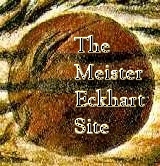|
|
||
 |
Meister Eckhart Home / Works by Meister Eckhart - Quotes / Inspired by Eckhart / Studies / The Papal Condemnation / Mail & Announcements / Links / Books |
The First German Movement In Its European Setting (1270-1350)
Page 2
The rising of Ghent (1338-75) and Jacob Arteveld's abortive dictatorship of the workers touched off a general movement throughout Europe. In 1382, twenty-six thousand workers fell in the battle of Roosebecque. Germany too had its revolts - at Strasbourg (1346-80), Cologne ( 1396), Regensburg, Würzburg, Bamberg, Aix, Halberstadt and Lübeck, but in fury, violence and bloodshed they did not compare with those in the West [2]. Throughout the fourteenth century, the rebellious French citizenry suffered frightful losses. There were revolutions in Paris in 1356, 1358, 1379-82, and 1413 (under Caboche and Capeluche), but the kings and princes were victorious. The Dukes of Burgundy repressed the risings at Bruges (1436-8), Ghent (1431-6, 1448), Liége and Dinant (1408-66 ) In Italy, already overflowing with migratory workers, unemployed and exiles (there were twenty-two thousand beggars in Florence alone), the repressed masses broke out in revolt at Bologna in 1376, Genoa in 1339 and Siena, 1355-70. Byzantium, in the final years before its co1lapse in 1453, was shaken by social and religious unrest; Salonica was governed from 1342 to 1352 by a "red" dictatorship of sailors and artisans, wielding ritual terror as an instrument of government. During the same period, the Bogomil Churches, "friends of God", and "the people of God" were very influential in the Balkans. The term "people of God" was used by the Fellowship (Ciompi) who, under the leadership of a worker, Michele Lando, set up a reign of terror and a revolutionary authority in Florence, and again used by the jacquerie, the peasant rebels in France who rose in 1358. The vengeance exacted by the nobility was no less bloody than the terror practised by the people in "God's courts of justice". There were twenty thousand executions of misérables, homeless and unhallowed wretches. In 1380, two priests, John Ball and Jack Straw, with Wat Tyler as military commander, led the English Peasant Revolt in the name of Lollard ideas. For a short time, they were masters of London and of King Richard II. It was as "the people of God" that the Hussite armies penetrated central Europe between 1418 and 1437. Joan of Arc Iaid the foundations in the French people of the sense of their mission to be the elect and the beloved of God. Her French opponents were drawn from the nobility and higher clergy while her English opponents were unable to match her.
Cf. Meister Eckhart von Friedrich Heer ||| Mail: Heer, Tauler & nazism